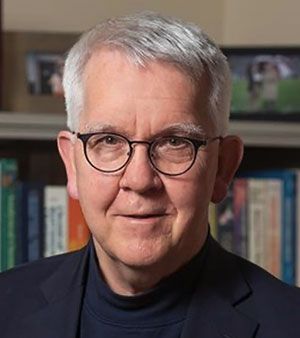Paul Bohn Receives SEAC Charles N. Reilley Award
Paul Bohn

Paul Bohn, the Arthur J. Schmitt Professor of Chemical and Biomolecular Engineering at the University of Notre Dame, is the 2022 recipient of the Society for Electroanalytical Chemistry (SEAC) Charles N. Reilley Award. The presentation of the award will take place on April 18, at 1:00 pm EDT at a Pittcon 2022 virtual awards session. The award is given in memory of Charles N. Reilly, one of the most distinguished analytical chemists of the 20th century who made seminal contributions not only to electroanalysis, but also optical spectroscopy, nuclear magnetic resonance (NMR) spectroscopy, chromatography, data analysis, instrumentation, and surface analysis. The award honors a scientist who has made significant contributions to electroanalytical chemistry.
Bohn was selected for the award based on his creativity and ability to focus on important problems, his reputation as an excellent colleague, teacher, lecturer, and mentor, and his broad perspective on electrochemistry, into which he incorporates his expertise in spectroscopy, separation science, and fluid mechanics. His contributions have ranged from the study of in-plane potential gradients for surface mapping to atomic-scale junctions, electrochemical zero-mode waveguides, and nanopore electrode arrays for redox cycling, single-molecule electrochemistry, and ionotronics. Among his awards are the ACS Award in Spectrochemical Analysis (1997), the Theophilus Redwood Award of the Royal Society of Chemistry (2010), and the ACS Award in Electrochemistry (2017). He is an elected Fellow of AAAS.
During the awards session, Bohn will present a lecture titled. “Multifunctional Nanostructures for Electrochemistry of Single Atoms and Molecules.”
To register for the awards session, go to: https://us06web.zoom.us/webinar/register/WN_vrT2rlKCTx-yC1GK25Gx9Q
Rethinking Chromatography Workflows with AI and Machine Learning
April 1st 2025Interest in applying artificial intelligence (AI) and machine learning (ML) to chromatography is greater than ever. In this article, we discuss data-related barriers to accomplishing this goal and how rethinking chromatography data systems can overcome them.
Study Examines Impact of Zwitterionic Liquid Structures on Volatile Carboxylic Acid Separation in GC
March 28th 2025Iowa State University researchers evaluated imidazolium-based ZILs with sulfonate and triflimide anions to understand the influence of ZILs’ chemical structures on polar analyte separation.
